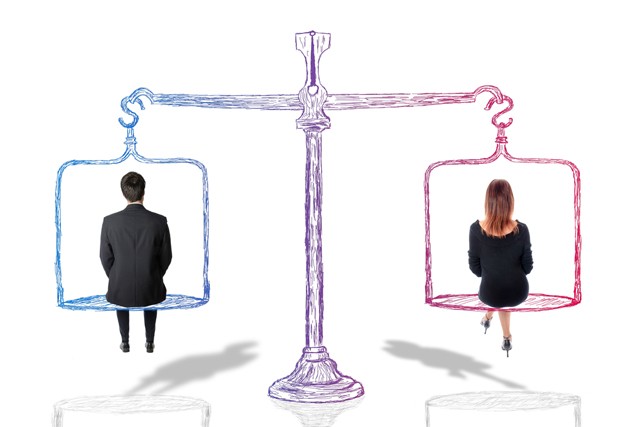
Power Play
I am Radhika Mahipal, a 30-year-old executive director of a bank. My husband Nikhil, 32 years old, a chartered accountant works as an advisor to a multinational company. Both of us have been having a lot of arguments right from our early marriage days about gender bias in our society. I feel that men always get to enjoy more fruits from the society than women, although they contribute less or equal to society. Even our movies and our patterns of interactions reflect that. Also in our political scenario this is more evident. He is arguing against that fact, but with a smile that betrays his lack of conviction and rather argues for his support to that. Could you shed some light on this apparent disparity between the genders in our society?

Even though men and women are equal, they do not have equal access to the world. There are a lot of interesting explanations and ideas about the way men and women behave, especially towards each other, but it does not ultimately explain why men have the power. Not every man today holds an enviable position of power. Not every woman is suppressed. Many couples, strive for some sort of equality in the home. Businesses also make real effort to achieve and enforce some kind of sexual equality in the workplace. Still, overall control over big decisions – ones governing the future remain largely in the hands of men.

Women do rise to positions of real power these days, but often only by adopting the traditional values of the men who have come before them. We are practically surrounded by self-help books explaining that men and women approach the world differently, that we need to understand the differences. If men lose power over women in one sphere, they make up for it in another. Domestic chores is one of the most indicative of this. Even in dual-career households, equally paying jobs, women end up doing more domestic work, upto three times as that of men. Men often find it demeaning to have to dust and clean; they probably consider it a subservient position in the relationship. The second issue of course, is money as power.

Men are paid more for the same work and hold more of the high-paying jobs. However, one can argue here that women have financial control beyond their pay, they have more access to the men’s salary for spending than men have to the women’s salary. Even though women have achieved a remarkable status in politics, there is a relative dearth of them as leaders. Males have traditionally allowed themselves to create a social system which devalued the advantages women have. Power, is actually built by relationships. Strong family bonds can actually control the males. Therefore it is not whether the males and females differ in their relationships, but how the sexes form intrasexual relationships, which determine the character of the social structure. Women are also able to form extremely tight groups, strong social networks, talk more easily about intimate matters, express emotions more surely, but are unable to use their ability to build strong social networks to achieve power and dominance. Women also help keep other women down.
Women also identify more with their families than with their sex. So, they are more frequently siding with their husbands or fathers. Traditionally, women have relied on men to support the household financially. In that context, building an alliance against one’s provider would be like biting the hand that feeds you. Females appear less pragmatic than males about rebuilding relationships; they are slower to forgive, and in the sense that they are more vulnerable to an emotional response, the alliance is not as strong. This prevents women from gaining leverage from the bonds and becoming as powerful as males. Women might band together to share information about child care, families, and household needs while males find interest in hierarchy and forming an alliance of people who would be most useful – relatives, friends, acquaintances – as long as it works. Men might do more than play to their own strengths. They might also downplay any advantages that women have.

Gender bias is more pervasive and more covert than racism, because the assumptions about sex differences are largely unrecognized and unexamined. The point is not whether there are differences but that the differences be approached and studied without value judgments. The best sort of partnership – the most reinforcing, the most rational, the most fun – will come only when we learn to fully appreciate and honour what we have in common and what makes us so confoundingly different.



